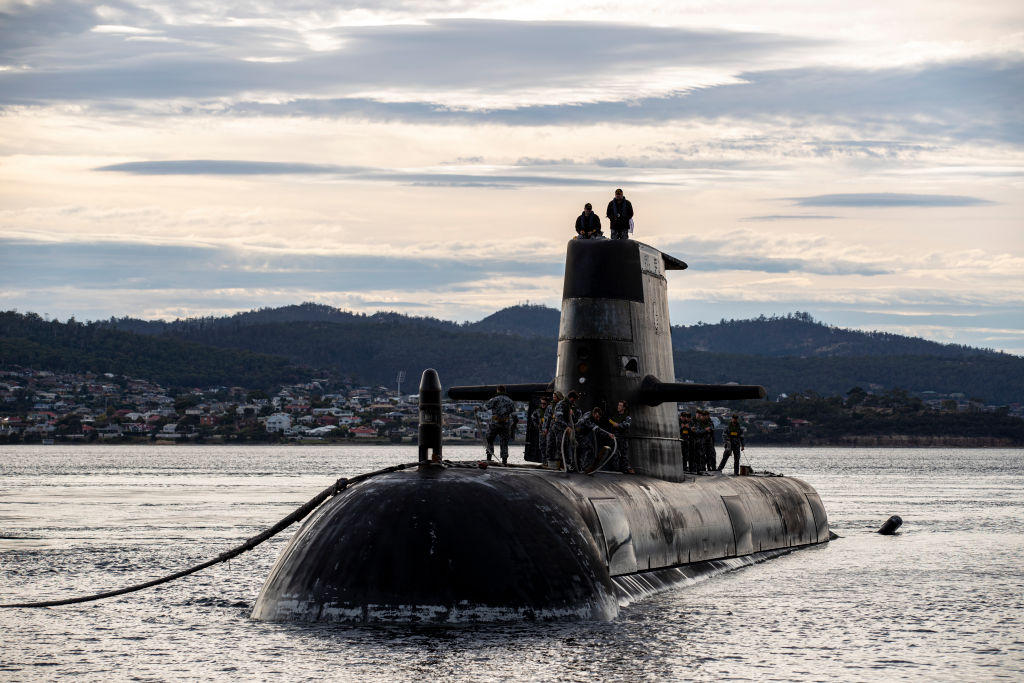Aukus is a pact between Australia, the United Kingdom and the United States. But its primary purpose is combatting another country: China.
‘It’s about China, let’s be quite clear,’ says security minister Tom Tugendhat. ‘You will not see many direct references to China in Aukus literature,’ says Sophia Gaston, director of the British Foreign Policy Group, ‘but it is certainly implicit. China is looming in the background; a spectre’.
For Australia, it’s vital that the Aukus pact succeeds in the face of the growing threat from Beijing
That spectre was the focus of a fringe event at Tory party conference, discussing whether Aukus can shift the balance in the Pacific. Tugendhat is optimistic it can. One of the headline announcements of the Aukus pact – the development of nuclear-powered submarines – remains some time away. But the agreement, announced last September, is already bearing fruit: deeper co-operation between the three countries’ navies is already evident, says Tugendhat.
For Australia, it’s vital that the Aukus pact succeeds in the face of the growing threat from Beijing. ‘This project is existential for Australia,’ says Gaston. But the agreement is about more than just Australian domestic security, important as that is. Tugendhat argues that Aukus should be a broader springboard for alliances between other countries. ‘Aukus should be at the core of a new alliance of free countries that enables the sharing of technology,’ he says.
Sir Martin Donnelly, president of Boeing Europe, which sponsored the event, agrees that the pact is going well. But he worries that the UK risks getting left behind in this alliance. ‘There has been good progress,’ he says. ‘My concern is that, in some areas, particularly pillar two (cooperation on advanced technological capabilities) there are some signs that Canberra and Washington have gone further than London has. Now is the time for the UK to be very pro-active’.
Alicia Kearns MP says that it is clearly in the UK’s interest for this pact to succeed. She sees the agreement as primarily a ‘tech accelerator’, allowing the three countries to work closely together. Donnelly agrees: ‘This is an opportunity for us to get better at developing technology together. We have got to maintain that technological edge,’ he says.
Aukus is important for another reason, argues Kearns: the fact that clashes between various countries increasingly happen at sea. As a result, she says, ‘we need a maritime-informed view as we go forward’ – something that Aukus, which is intended to shift the balance in the world’s largest ocean, should hopefully help do.







Comments